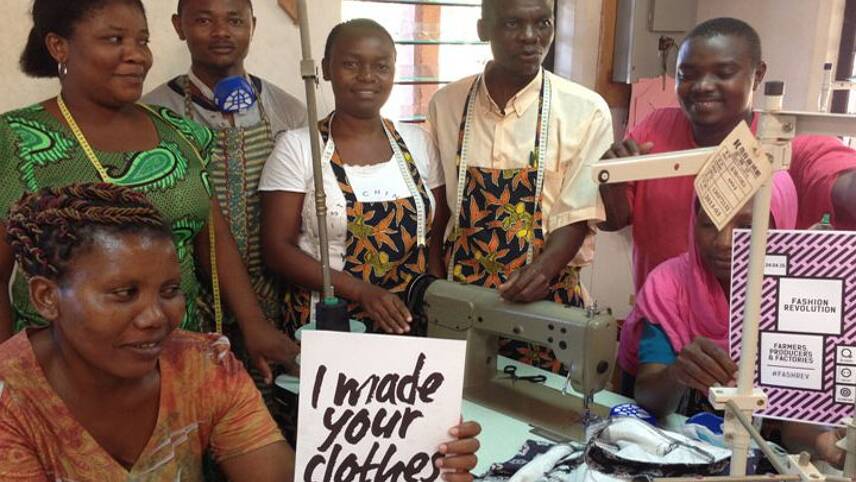Register for free and continue reading
Join our growing army of changemakers and get unlimited access to our premium content

The move builds on ASOS's pledge to eliminate modern slavery from the supply chains of its 87
Published today (26 March) ahead of the House of Lords’ Modern Slavery Forum, the call to action urges brands appearing at the event to implement “meaningful” practices to prevent human rights abuses in their supply chains and support the victims of past offences.
Specifically, it recommends that all fashion firms should map modern slavery risks across their own supply chains, train their employees to identify risks and cases on the ground, and work collaboratively to develop tools which help suppliers to eradicate unethical practices.
ASOS is additionally calling on designers, retailers and suppliers to strengthen the statements they publish under the Modern Slavery Act on an annual basis, and to meet each year to provide evidence of the progress they have made and co-create solutions to remaining challenges.
The likes of Dr Martens, Missguided, New Look and River Island have already agreed to take these moves, which will now be presented to brands such as Boohoo, Fred Perry and Marks & Spencer (M&S) at the House of Lords this afternoon. The session will be co-hosted by ASOS and the All-Party Parliamentary Group on Ethics and Sustainability in Fashion’s co-chair Baroness Lola Young.
“With a growing legislative focus on modern slavery, there’s never been a better time to act together to drive systemic change in the industry,” ASOS’s chief executive Nick Beighton is expected to tell attendees at the forum.
Baroness Young, meanwhile, is set to explain that making the pledge will “show that there is space for pre-competitive collaboration when it comes to ensuring human rights due diligence”.
The event coincides with the publication of ASOS’s latest Modern Slavery Act statement – its first since launching a factory list and interactive sourcing map for all tier one and tier three suppliers across its own-brand lines. The 12-page document reveals that ASOS has now achieved all of its 2016-2017 modern slavery commitments, and is now targeting a new set of 2020 goals which also cover its third-party portfolio of brands.
Business in the UK with a turnover of more than £36m are already legally required to publish Modern Slavery Statements, that set out the steps being taken to stop forced labour practices if found in their business and supply chain.
Who made my clothes?
Fashion is one of the largest industries in the world, employing around 75 million people worldwide and producing 100 billion garments every year.
But for all of its benefits to the global economy, the sector is believed to be the second highest-risk industry for modern slavery after technology and employs thousands of people below their nations’ living wage. Indeed, Fashion Revolution claims that none of Europe’s 150 largest fashion retailers are transparent about more than 60% of their supply chain activity.
Modern slavery in fashion supply chains has long been a concern for the industry, with one BBC expose having revealed that Syrian refugees earning as little as £1 per hour were working in third-party suppliers in Turkey, linked to a number of high-profile fashion retailers.
More recently, H&M was accused by green campaigners of failing to fulfil a commitment to pay all garment workers enough to keep them above the poverty line.
These trends have spurred a wave of awareness of the issue among policymakers and consumers alike, leading many large fashion retailers, brands and designers to bolster their human rights practices. A coalition of the UK’s largest fashion retailers, including John Lewis and M&S, for example, recently partnered with the Gangmasters and Labour Abuse Authority and UK Government’s Modern Slavery Taskforce to help reduce forced labour risks in the sector. Similarly, the likes of Adidas, Gap and Primark have all expanded their social sustainability and responsible sourcing policies in recent months.
Looking to the near future, MPs are set to meet on Wednesday (27 March) for the first in a string of discussions on how policy can be altered to best help victims of modern slavery across the UK. They are expected to back plans to increase the amount of time for which a person who has been confirmed a victim of modern slavery can receive Government support, which currently stands at just 14 days.
Sarah George


Please login or Register to leave a comment.